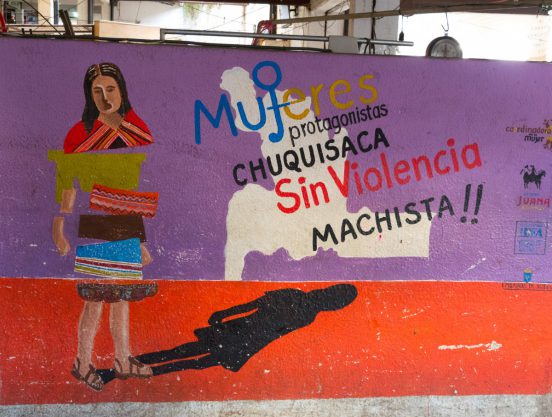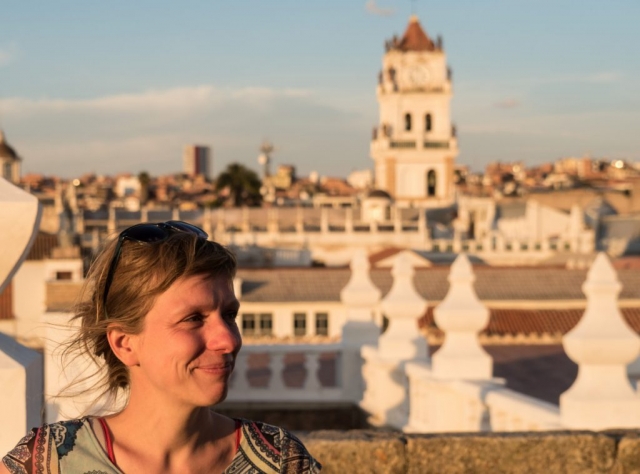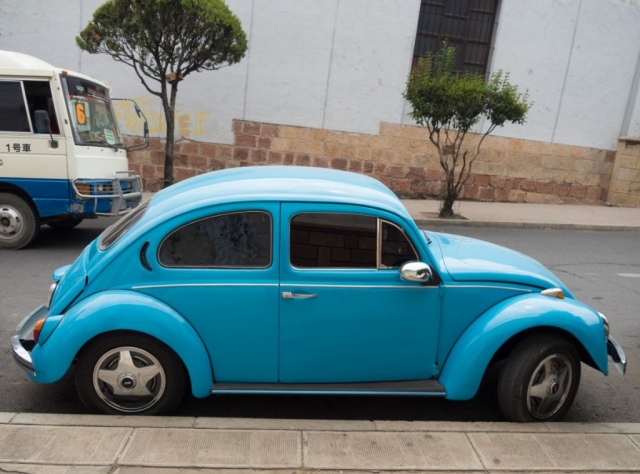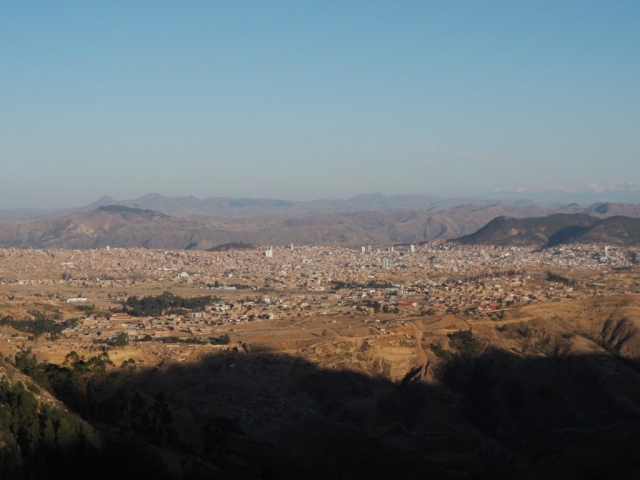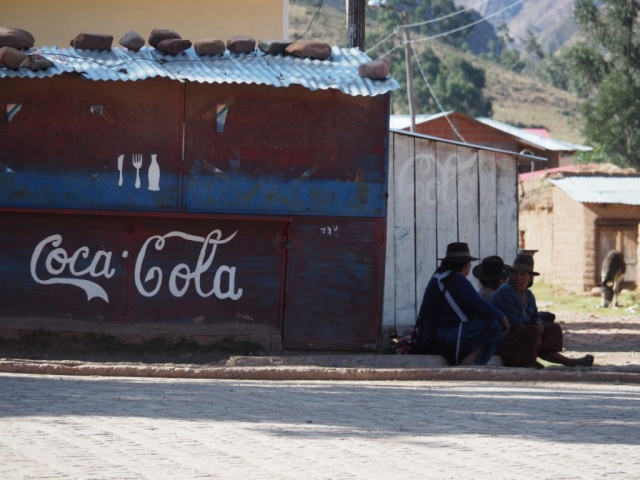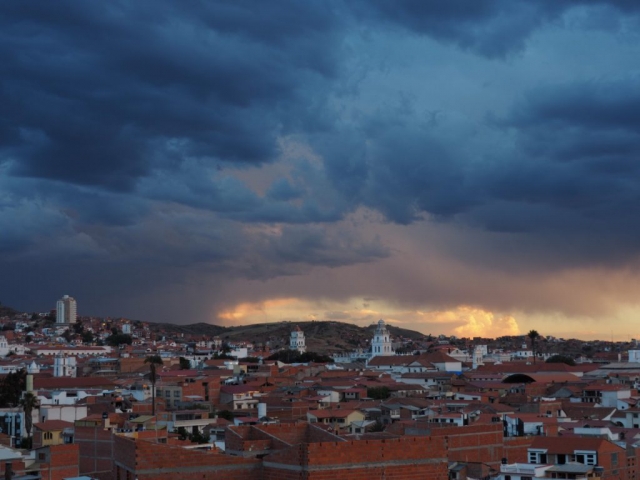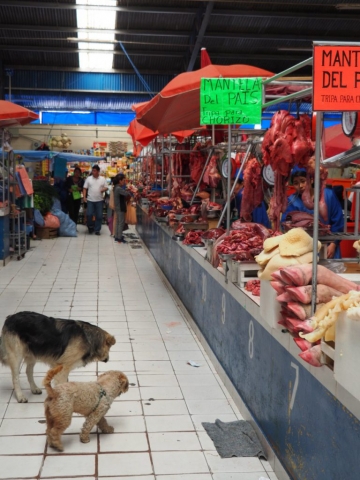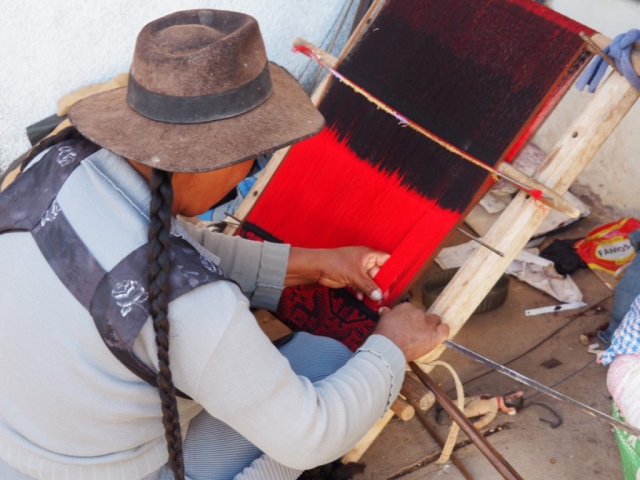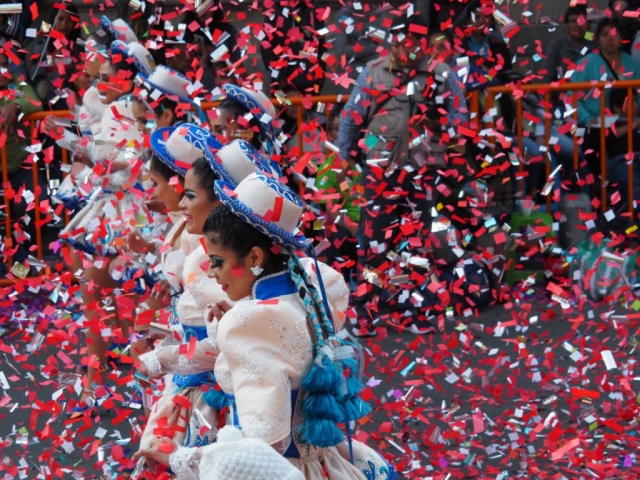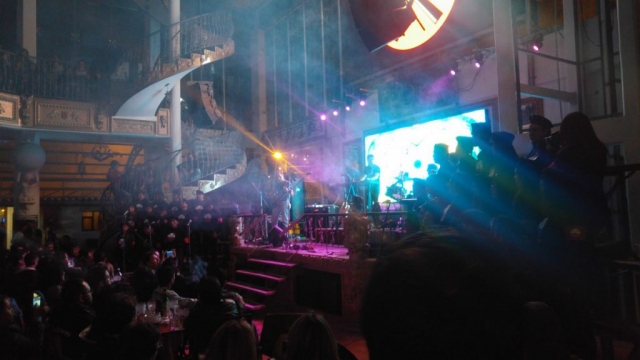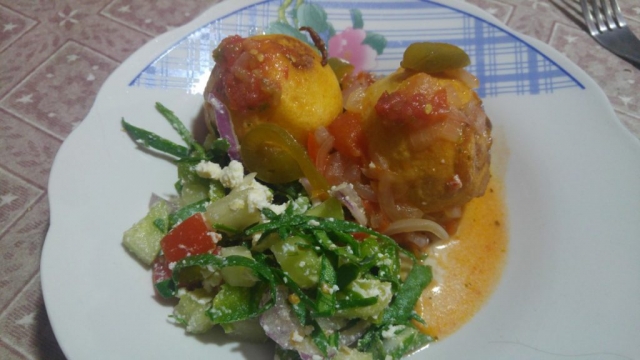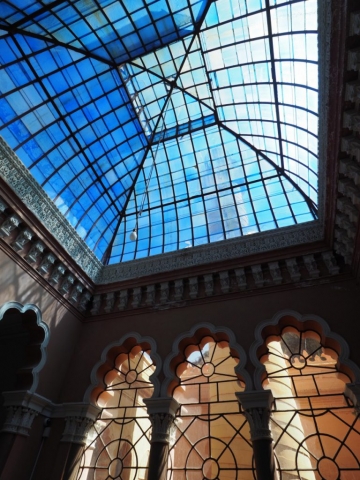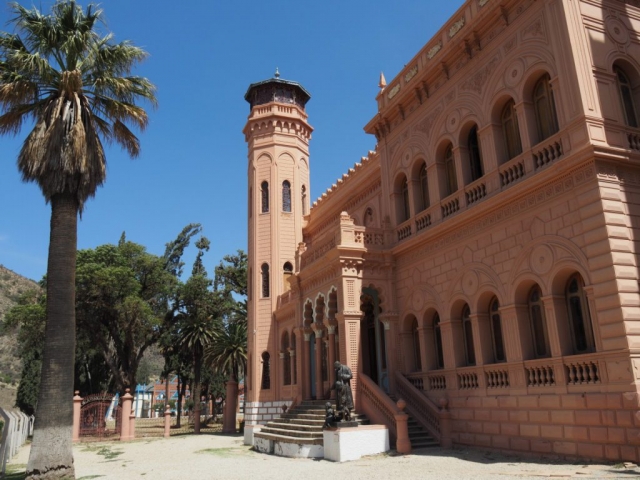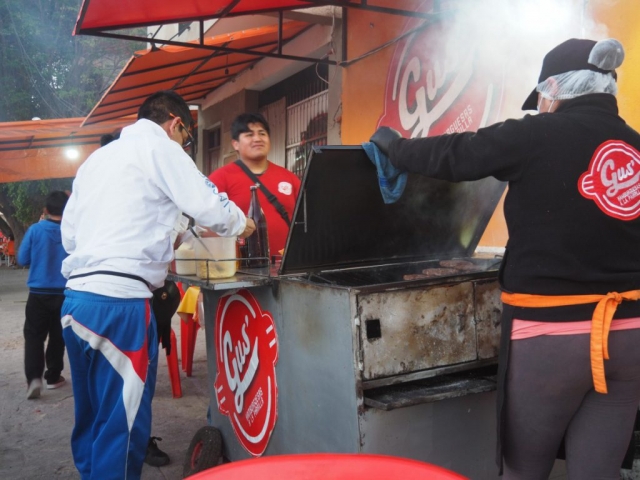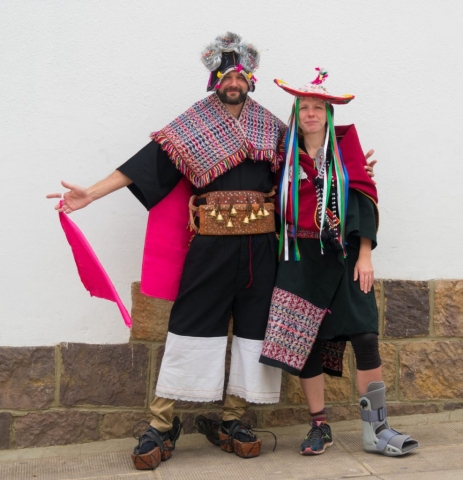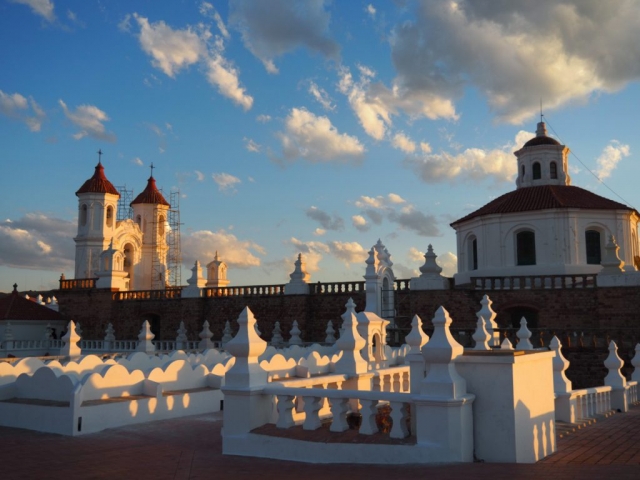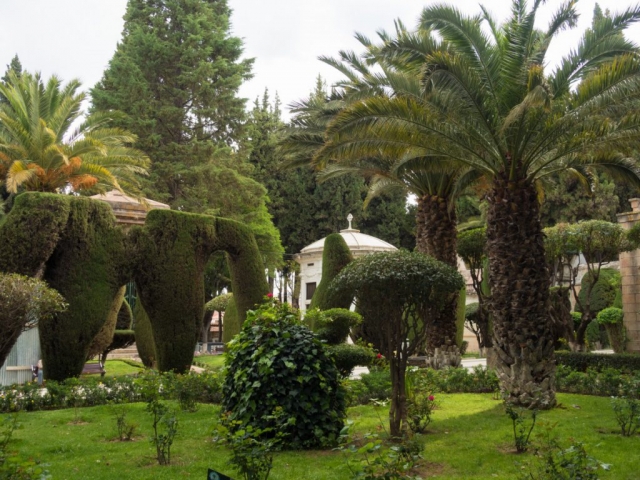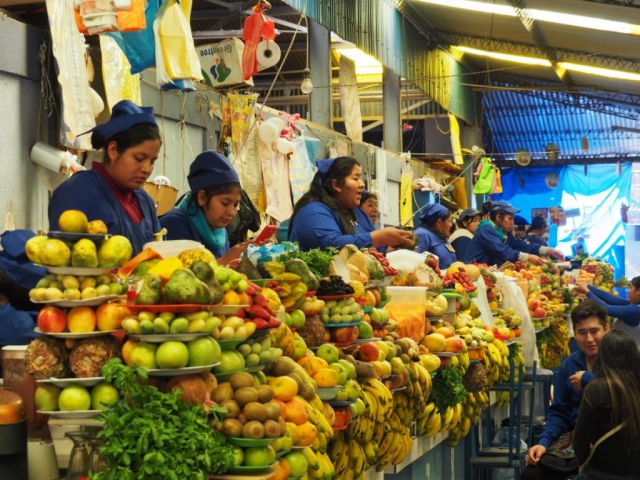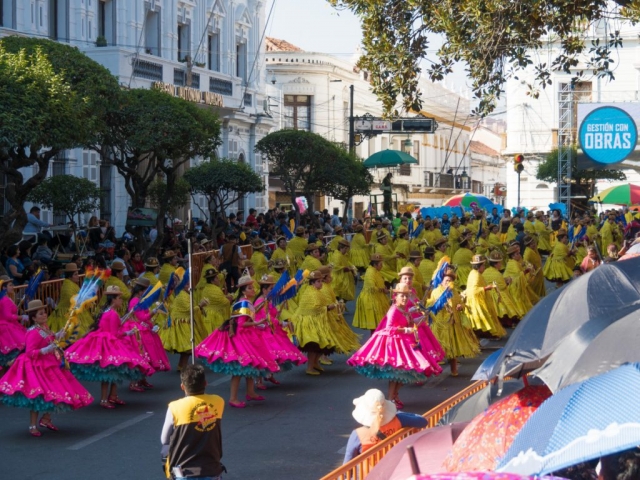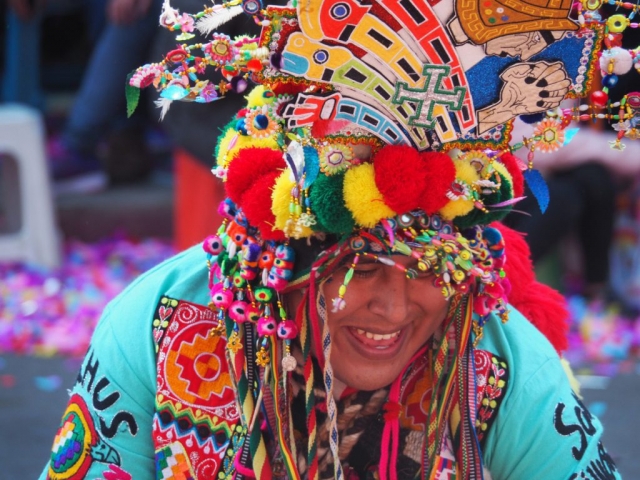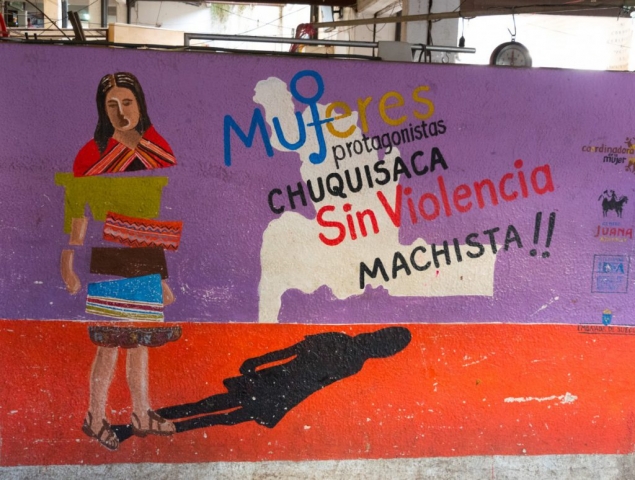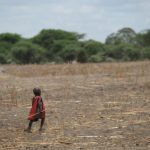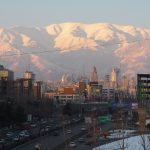We’ve been in Sucre for six weeks. Five weeks have passed since my accident. Standing still. Stuck. The exact opposite of sightseeing, excitement, experience, a trip around the world. But it offers us the unique opportunity to look into everyday life of our teachers Tatiana and Jhanet. We get to know them in a way that has not been possible with anyone else on our journey so far. We’ve been staying simply too short in places like Iran or Argentina. Here we can see the real Bolivian life.
Both women are trained language teachers and both live at the limit. Tatiana is single and provides for her daughter and her mother solely with her salary. Jhanet has a taxi driver as husband and two children. Her salary from the language lessons is just like Tatiana’s the constant source of income for the family. So everything depends on whether tourists come to Sucre and want to learn Spanish or not. Competition is fierce and prices are similar in the other language schools. Hence making the lessons more expensive wouldn’t work. Especially since our language school is a non-profit organization that supports projects for children or seniors with a part of the income.
Some tourists consider the Spanish lessons as a chance to get to know other people and culture, others use them to fill a gap, some don’t know what else to do with their time, some want to prepare their internship, others just want to get to know Latinas and more… Consequently the tourists sometimes ask for a week of language lessons or even six months, including the occasional, funny extra wish. And no matter who is coming, as Tatiana and Jhanet you have to be flexible, to be able to meet the requirements of the tourists, so that they can improve their Spanish in exactly this school. In the past weeks there were times when Matthias and I were the only students. In these situations we saw them hope and pray that more tourists would come. In the famous travel guide Lonely Planet the language school is not listed. So the tourists have to find their way to them via internet recommendations or word of mouth.
Fridays are paydays at school. Friday is a good day, as Jhanet told Matthias, because they get tips from both of us. One time Jhanet was on the market shopping yogurt and muesli with the little extra. Both are very expensive and luxury goods here in Bolivia. Tatiana bought imported (ergo expensive) Voltaren cream from her tip against the nightly pain of her mother.
Both teachers live on a tight budget. There is never too much money, on the contrary, it is never enough. And they always have to juggle what is next and what needs to be bought most urgently. With us as the only students, the teachers at our school earn 300 Bolivianos per week (approx. 35 Euro). With this kind of salary nobody can buy a house here. The real estate prices are only slightly lower than in Germany. So an apartment has to be rented for about 100 € or 150 € per month.
Besides real estate, the second most expensive thing in Bolivia is health care. Who gets sick, cuts a gigantic hole in the wallet or causes debts for the entire family. Only people in public offices have health insurance in Bolivia. Everyone else pays in cash. A visit to the doctor costs on average between 12 and 25 Euros, not including blood samples or ultrasound, only the consultation. If the doctor wants further examinations and to discuss the results afterwards, the whole thing becomes unaffordable. Jhanet introduces me to her son with tonsillitis. She wants a second opinion, the pediatrician said that the tonsils have to be removed. Fortunately, I can help her free of charge. An operation clearly is not necessary. She is relieved, not only because of the risk of the operation, also because of the costs.
If someone gets sick in Bolivia, loans are taken from friends to pay the doctor. A taxi driver tells us that he had to borrow 14,000 Bolivianos (1,750 €) for his mother-in-law, who needed a pacemaker. Tatiana’s mother has foggy vision in one eye and barely hears anything with the other ear. She doesn’t want to go to the doctor because she doesn’t trust them. But they also have no money to pay for therapy.
And money is not only scarce for medicine: Tatiana actually needs glasses because she is nearsighted. Her mobile phone, with which she also writes messages with students, is so old, the battery is bloated and will probably explode soon. They don’t have a PC at home, but they do have an old TV, where they carefully switch the channels with a finger on a broken button. Tatiana shares the room they sleep in with her mother and her grown-up daughter. She shares the bed with her daughter and her three dogs.
Travel? Holidays? These are foreign words for Tatiana and Jhanet. As a rich “gringo”, which is what you get called here as a tourist, you feel just bad. “Working? No, for almost a year now …” Unemployment compensation, holiday pay, sick pay, Tatiana laughs about that. There was and is no such thing in Bolivia. Here you have to do what you need to survive. You have to be creative and help yourself. Banks don’t give you loans without certain savings. Neither Tatiana nor Jhanet have a bank account or a credit card. But like in Asia, there are microcredits here in Bolivia as well. A group of people takes out a loan together and puts the other members personally under pressure if the loan is not paid off. But once again nobody should get sick…
One day Tatiana has to postpone her lessons. She has to go to the credit institute. A member has got cancer and can no longer pay. They want to discuss in the group whether it can be paid off all at once together. Fortunately it is not that much what is missing. Another time Tatiana has to postpone lessons again, because her mother’s identity card has been stolen. Since her mother can hardly see or hear any more, Tatiana has to take care of these administrative procedures together with her. A new identity card is issued, but without a professional title. In office there is no proof of the mother’s profession, as the office has moved and the proof can no longer be found. However, the mother no longer has a document either, because the house in which she used to live has collapsed. It is terrible for the mother to have worked as a midwife for decades and now to no longer have an official profession as a pensioner. A resolution of the issue is not in sight.
Every day when we meet, I have the feeling shortly before our class that something has happened again that worsens the financial situation. Nevertheless, we laugh in class, even a lot, with Tatiana and Jhanet. Even if it is sometimes very serious. Our worlds couldn’t be more different. After class, Jhanet goes home to take care of her two children. Tatiana goes back to school and teaches English, especially for young people with little or no income.
Matthias cooks and together we bake “Eierschecke” for our teachers, give tips regularly, support Tatiana in her English lessons, invite them for tea and fruits in class and give them films, English and Chinese language courses, English books and SD cards. I show Tatiana how to skype so that she can offer lessons via Skype and still earn money in a weak period. And we give her a new battery for her mobile phone so that it doesn’t explode. Tatiana always brings us new, delicious little things that we don’t know yet. And she visits me every day in our AirBnb so that I don’t have to hobble with my crutches to school. On our last day in Sucre she does a city tour with us, the special Tatiana tour. On a road that we have walked along three times, today we see bones between the cobblestones for the first time. Also the shop of Tatiana’s mother should not be missing on the visit list. We are dressed in Bolivian costumes with mischievous joy by the whole family and receive a lot of gifts.
I think the only reason why Tatiana hasn’t gone crazy or given up yet is her family: her daughter and her mother. She believes in God, but she is not Catholic, as she stresses several times. Her strength comes from helping others: in her English lessons for young adults or in the projects of the language school. Or from the small help for people with broken ankles or for people without a roof over their heads.
Maybe staying still and getting stuck sometimes isn’t bad at all. We weren’t skydiving or diving and we weren’t on mountains 5000 meters high. Instead we had the chance to meet strong women who became self-employed, who took out loans in order to take care of their families. Women who live every day at their financial limits and hold their ground in a world dominated by men. Clearly it was worth staying longer.
